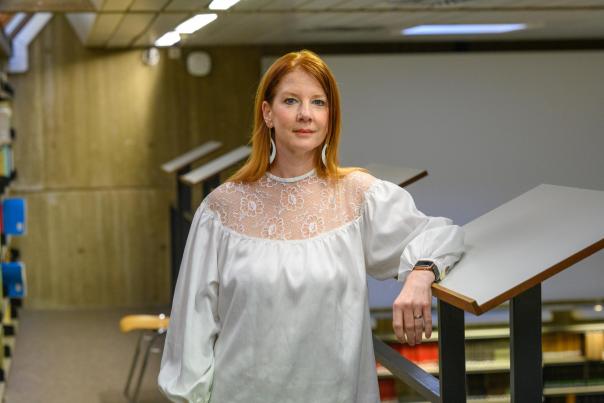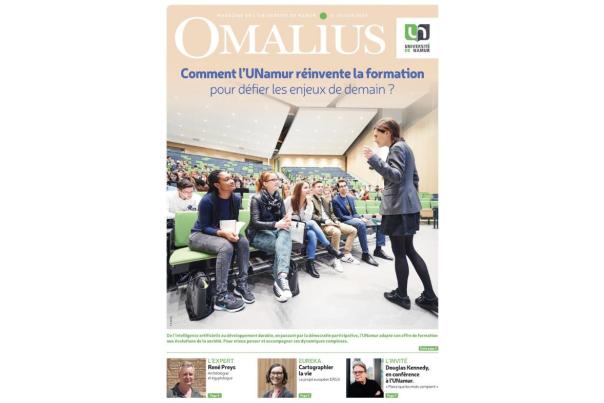This article is taken from the "Impact" section of the June 2024 issue of Omalius magazine.
When commenting on the International Convention on the Rights of the Child, Géraldine Mathieu doesn't stop at the 12 most frequently cited rights. "As relevant as the selection made by the French Rights Defender is (see box), it is far from covering all children's rights: there's a reason why the Convention has 54 articles!
I therefore prefer to talk about the 4 pillars of the Convention, which are "the best interests of the child shall be a primary consideration", the protection of the child against all forms of discrimination, regardless of, in particular, the mode of conception and the status of the parents, the right to life, survival and development, and "the right to express his or her views freely in all matters affecting him or her" and to have those views taken into account."
Discrimination
In other words, the child is a human being in his or her own right and, like all human beings, is entitled to fundamental rights, including the right to know his or her origins, in order to appropriate his or her history and forge his or her identity. "This right is protected by Articles 7 and 8 of the Convention", says Géraldine Mathieu. "And this is where Belgium practices, in my opinion, an inadmissible form of discrimination. In our country, if a child born of natural procreation wants to find out the identity of his biological father, the courts will help him to do so. In the Delphine Boël case, for example, King Albert was ordered to submit to a DNA test. For adopted children, the name of the biological mother is recorded in the birth certificate: to have access to the identity of his or her mother, the child simply needs to request a certified copy of this certificate. But this protection does not extend to children born from anonymous sperm or egg donation, as part of medically assisted procreation (MAP)."
Serial donor
In this respect, Belgium is marking time compared with many European countries, notably France, which has just lifted donor anonymity. "Obviously, the lifting of anonymity must not be confused with the establishment of legal filiation," Géraldine Mathieu points out. "In fact, almost all countries that have lifted donation anonymity have blocked all effects at the level of filiation. But children who wish to do so must be able to obtain information about their donor, at least non-identifying - what he looked like, his occupation, his personality, why he made the donation - but ideally also identifying, if only to counter the fear of an incestuous encounter with another child from the same donor... Recently, the Netherlands revealed the existence of a serial donor, who fathered over 500 children!"
Biology
In Belgium, sperm from the same donor cannot lead to the birth of children to more than six different women. "But, when the 2007 law on PMA was passed, the right to identity of children born from this technique was completely neglected", insists Géraldine Mathieu. "In fact, they have grouped together, in Belgium, within the association Donor Kinderen. These children have the right to be given back everything that makes them who they are today - their parents' wishes, of course, but also their biological origins. In the quest for identity, biology should be neither overestimated nor underestimated."
GPA
For children born of surrogate motherhood (GPA), it's not easy either to get their rights respected in general, and their right to identity in particular. "In Belgium, GPA is not prohibited as it is in France, but neither is it regulated," explains Géraldine Mathieu. "So, we tinker with common law..."Although the centers that practice GPA refuse any genetic link between the surrogate mother and the child (so she doesn't provide her oocytes), it's her name that appears on the birth certificate, and she is therefore its mother in the eyes of the law. The intended parents must then resort to adoption to formalize their relationship with their child. It is also possible for the father of intention to recognize the child, and then for the mother of intention to adopt the child. Provided the surrogate mother doesn't change her mind...
Non-trade
"This is why many couples tempted by GPA go abroad, particularly to the United States, where the surrogate mother undertakes by contract to give up the baby at birth, the intended parents being legally considered the parents," details Géraldine Mathieu. "But this is obviously a commercial relationship, with surrogacy agencies and surrogate mothers being paid. Yet a child can neither be bought nor sold: it's off the market! "In Belgium, several bills aimed at framing GPA have already been tabled. "But none of them mention the rights of the child", notes Géraldine Mathieu. "Yet, unlike adoption, whose aim is to find a family for a child who is deprived of one, GPA consists in manufacturing a child for a couple who wants one. The day we legislate to regulate it, we mustn't forget that there is no right to a child, only children's rights, and that every child has the right to know where he or she comes from."
Marie-Françoise Dispa
The 12 (main) rights of the child
This article is taken from the "Impact" section of Omalius magazine #33 (June 2024).



